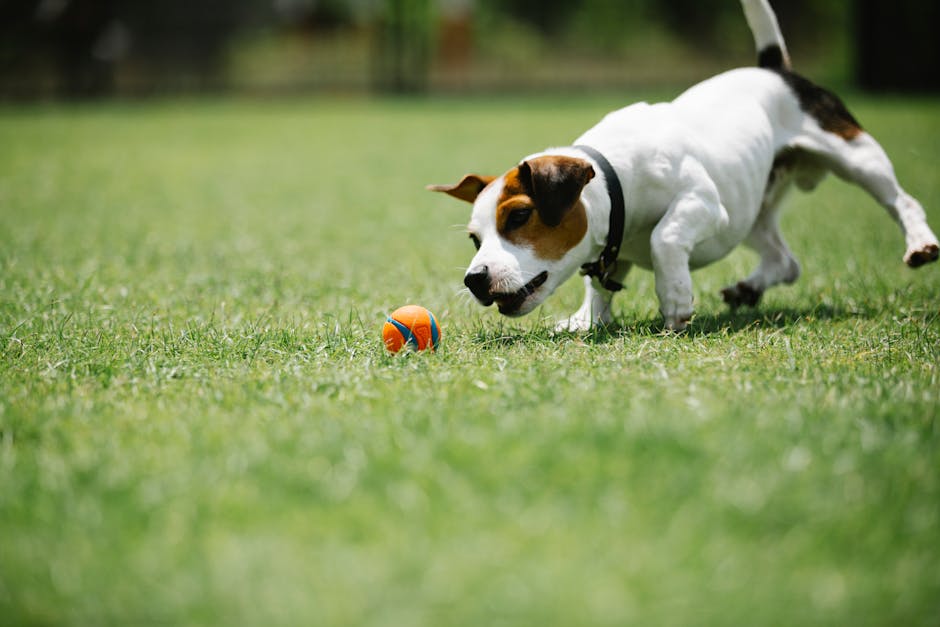The Benefits of Owning a Small Dog
When it comes to choosing a furry companion, many people gravitate towards small dogs for various reasons. These pint-sized pups often pack a big personality and bring a unique set of benefits to their owners. From their compact size to their affectionate nature, small dogs have a lot to offer. In this article, we will delve into the numerous benefits of owning a small dog, exploring the advantages that come with having a petite pooch by your side.
The Portability of Small Dogs

One of the most obvious benefits of owning a small dog is their portability. Small dogs are easy to transport, whether you’re traveling by car, plane, or public transportation. Their compact size makes them ideal for apartment living or for individuals with limited space. Small dogs can accompany you on trips, errands, and outdoor adventures without much hassle. This portability allows owners to bring their furry friend along for the ride, enhancing the bond between human and canine.
Small dogs are also more manageable when it comes to grooming and caring for them. Their diminutive size means that grooming sessions are typically quicker and easier, making it a convenient choice for busy pet owners. Additionally, smaller dogs often have lower energy levels compared to larger breeds, which can be beneficial for individuals with a more sedentary lifestyle.
The Affection and Companionship of Small Dogs

Despite their size, small dogs have a big heart and are known for their affectionate nature. These pint-sized pups are often referred to as “lap dogs” for their love of cuddling and snuggling with their owners. Small dogs thrive on human companionship and are loyal, loving pets that form strong bonds with their families.
Small dogs can provide emotional support and companionship to their owners, especially for those living alone or facing challenging circumstances. Their presence can help reduce feelings of loneliness and anxiety, providing comfort and unconditional love. Many small dog breeds are known for their friendly and sociable demeanor, making them great companions for people of all ages.
Furthermore, small dogs are often more adaptable to various living situations, including apartments, condos, and houses with small yards. Their size makes them well-suited for urban living, where space may be limited. Small dogs can thrive in close quarters and are generally less demanding in terms of exercise and activity requirements.
The Health Benefits of Owning a Small Dog

In addition to the emotional benefits, owning a small dog can also have positive effects on your physical health. Studies have shown that pet ownership, in general, can lower blood pressure, reduce stress levels, and improve overall well-being. Small dogs, in particular, can provide these health benefits in a more manageable package.
Small dogs require regular exercise, which can help owners stay active and maintain a healthy lifestyle. Daily walks, playtime, and interactive activities with your small dog can promote physical fitness and mental stimulation for both you and your furry friend. The bond formed through these shared activities can strengthen the human-animal bond and contribute to a healthier lifestyle.
Furthermore, small dogs are often longer-lived than larger breeds, with some small dog breeds living well into their teens or even early twenties. This longevity can provide owners with years of companionship and joy, creating lasting memories and experiences with their beloved pet.
The Training and Socialization Benefits of Small Dogs

Small dogs are known for their intelligence and trainability, making them excellent candidates for obedience training and socialization. These pint-sized pups are quick learners and can pick up commands and tricks with relative ease. Training your small dog not only strengthens the bond between you but also enhances their mental stimulation and prevents behavioral issues.
Additionally, small dogs can benefit greatly from socialization with other dogs and people. Exposing your small dog to different environments, situations, and stimuli from a young age can help prevent fearfulness and aggression. Small dogs that are well-socialized tend to be more confident, outgoing, and adaptable in various social settings.
Training your small dog can be a rewarding experience for both you and your pet. Positive reinforcement techniques, consistency, and patience are key when teaching your small dog new behaviors and commands. The skills learned through training can improve the quality of life for both you and your furry companion, setting the stage for a harmonious and well-behaved relationship.
The Versatility and Adaptability of Small Dogs
Small dogs come in a wide variety of breeds, each with its own unique characteristics and traits. From the lively Chihuahua to the affectionate Cavalier King Charles Spaniel, small dog breeds offer a diverse range of personalities and temperaments. This versatility allows potential owners to choose a small dog that aligns with their lifestyle, preferences, and needs.
Small dogs can excel in various roles and activities, including therapy work, agility training, and even competitive sports. Their size and agility make them well-suited for activities that require nimbleness and precision. Small dogs can participate in a range of canine sports and events, showcasing their talents and abilities in a competitive setting.
Furthermore, small dogs are highly adaptable to different living situations and environments. Whether you reside in a bustling city or a quiet suburban neighborhood, small dogs can thrive in a variety of settings. Their portability, trainability, and affectionate nature make them versatile companions that can easily fit into your daily routine and lifestyle.
Common Misconceptions about Small Dogs
Despite their many benefits, small dogs are often subject to misconceptions and stereotypes. One common misconception is that small dogs are yappy, high-strung, or aggressive. While some small dog breeds may exhibit these traits, it is important to remember that behavior is not solely determined by size. Proper training, socialization, and care are key factors in shaping a small dog’s behavior and temperament.
Another misconception is that small dogs are delicate or fragile, requiring constant pampering and protection. While some small dog breeds may be more prone to certain health issues or injuries, many small dogs are robust, energetic, and resilient. Regular exercise, a balanced diet, and routine veterinary care can help ensure the health and well-being of your small dog.
It is essential to approach small dog ownership with an open mind and a willingness to learn about the specific needs and characteristics of your chosen breed. Small dogs can be wonderful companions that bring joy, laughter, and love into your life, dispelling any preconceived notions or stereotypes along the way.
Conclusion
In conclusion, owning a small dog comes with a myriad of benefits that can enhance your life in numerous ways. From their portability and affectionate nature to their health benefits and training potential, small dogs offer a unique set of advantages that make them popular pets for individuals and families alike. The versatility, adaptability, and companionship of small dogs make them valuable additions to any household, bringing joy, laughter, and unconditional love to their owners.
Whether you’re looking for a loyal companion, a playful friend, or a cuddly lap dog, a small dog can fulfill your needs and enrich your life in ways you never imagined. Consider welcoming a small dog into your home and experience the many benefits that come with having a petite pooch by your side.




